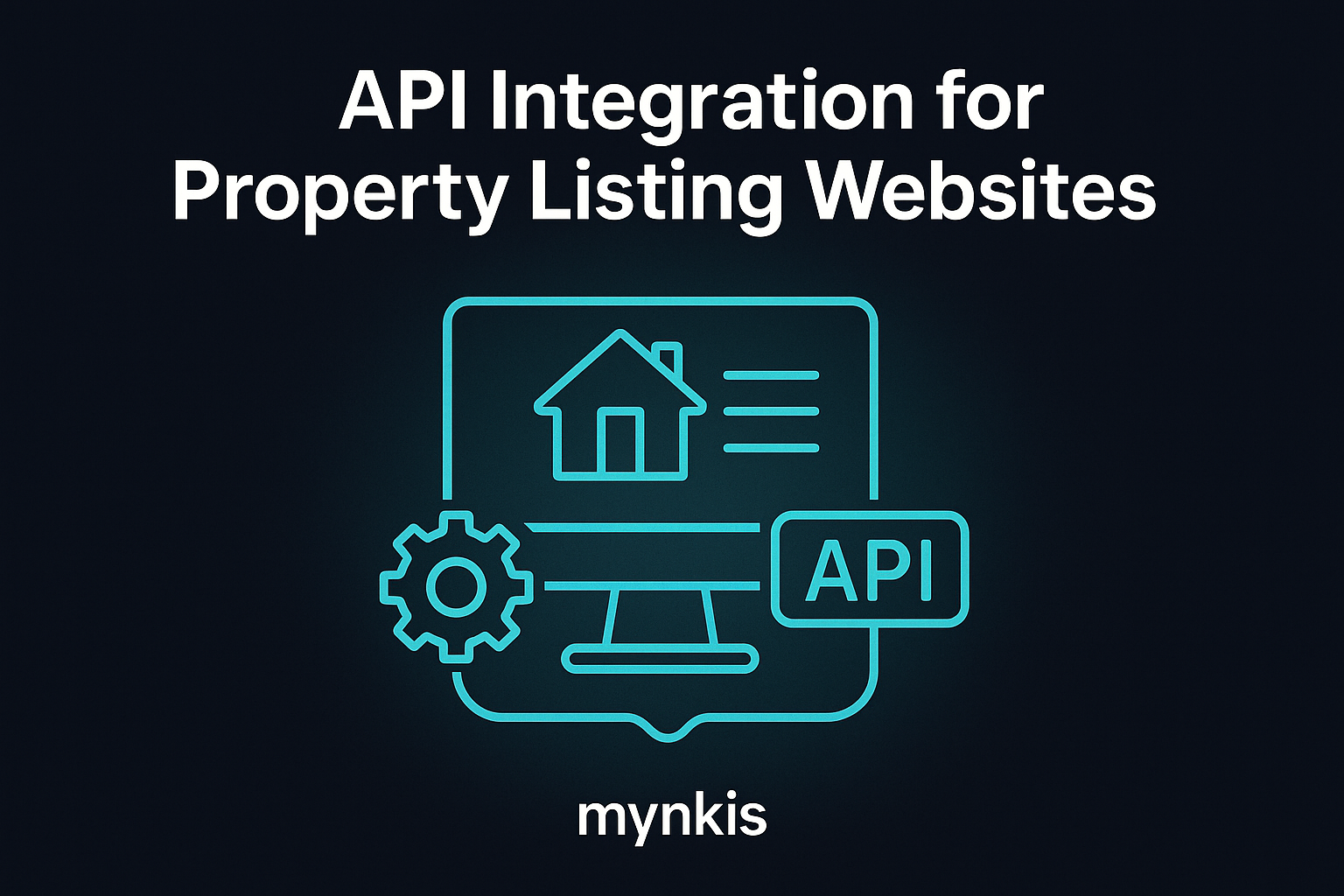Schedule a Demo
In my work with real estate brokers, I've seen how the quest for streamlined property listing websites becomes crucial. The focus isn't just on beautiful interfaces anymore; it's about leveraging technology to gain a competitive edge. API integration has emerged as a fundamental approach in web development that elevates these platforms to meet modern needs.
An API, or Application Programming Interface, acts like a bridge between different software applications. In the context of property listing websites, integrating APIs allows these sites to pull in real-time data, which can range from listing details to market trends. This interconnectedness is invaluable for brokers striving to offer the most current and comprehensive insights to potential buyers or sellers.
By adopting custom software development that includes API integration, real estate websites can ensure their data is synchronized with external services like MLS (Multiple Listing Services) or financial institutions. This means listings can automatically reflect changes in price or availability, saving time for brokers and ensuring accuracy.
Part of what attracts users to a property listing website is freshness of information—a key factor in SEO performance. With APIs providing up-to-the-minute listings and market insights, the search engine algorithms view your site as more relevant and current, boosting local query rankings.
Think about the last time you browsed for a new home. You likely had thousands of questions—about neighborhoods, pricing, schools, or amenities. A well-designed property listing site with integrated external data can answer these questions in real time, creating an immersive browsing experience for users.
With every benefit comes responsibility. APIs inherently carry security risks, so it’s vital to invest in robust security measures. Encrypting data transfers and adhering to compliance standards like GDPR can mitigate these risks, ensuring that user data, including sensitive financial information, remains protected.
In my conversations with a number of national real estate agents, I often hear about their successes in utilizing API integration to automate and improve their operations. A case in point is a brokerage that integrated with a top-tier mortgage calculator. Homebuyers could now instantly check affordability while searching, greatly reducing the time from browser to buyer.
Let's be honest, mobile browsing isn't a luxury, it's a requirement. When integrating APIs into property listing sites, ensure the result enhances mobile experience as much as it does for desktop. Dynamic content updated through APIs means quicker load times and a better experience on smaller screens.
Property searches today often boil down to location. By coupling custom software development with GIS APIs, brokers can overlay educational institutions, transport, and community centers directly onto listings. This functionality helps customers visualize potential homes within their environment, driving engagement and conversion.
What better way to reach a potential client than where they're already spending time? With social media integrations through APIs, brokers can make listings easily shareable, thus increasing reach and organic marketing efforts through customer networks.
Purchasing real estate isn't exactly like buying a book online; reviews matter massively in building trust. With API connections to review sites or in-house systems, a property listing website can incorporate feedback seamlessly, bolstering that site's SEO credibility while informing future viewers.
The real estate digital revolution presses forward. In discussions at a recent tech conference, the future potential of API integration with AI and machine learning technologies was extremely telling. These tools can offer predictive insights into buyer behavior and market trends—revolutionizing how listings are presented and recommended.
It's all intriguing, but no conversation about API integration would be complete without mentioning costs and potential limitations. Scalability can sometimes be challenging as websites expand, and you'll likely encounter an ongoing fee model for API access. Plus, service disruptions from external providers can be disheartening, yet they're part and parcel of this landscape.
If you're ready to dive into API integration for your property listing website, consider the strategic partnerships that can make your venture successful. Collaborating with developers familiar with real estate workflows will ensure the technology aligns with user and business needs, consistently yielding search results that move properties and engage more effectively with prospects.
